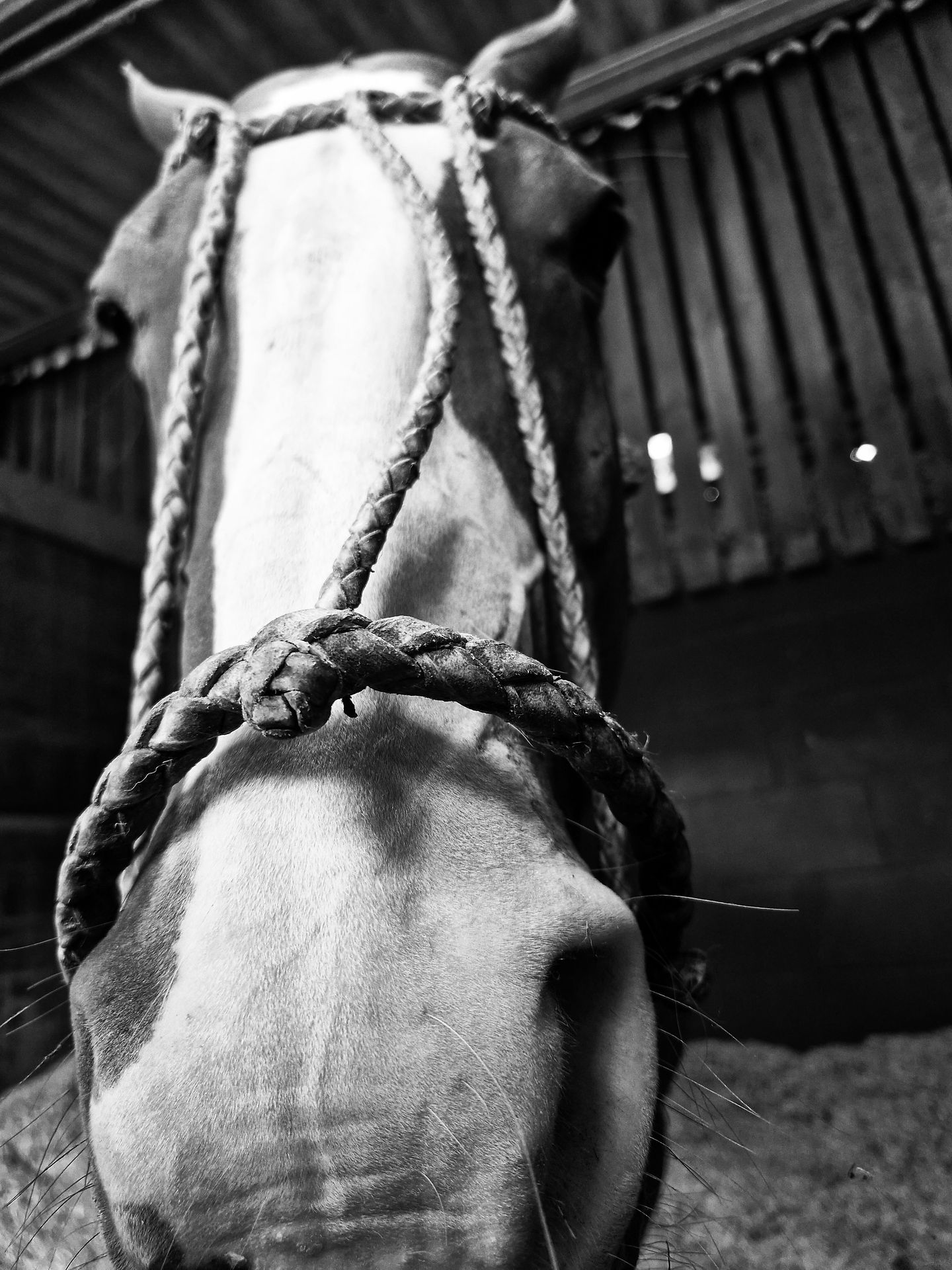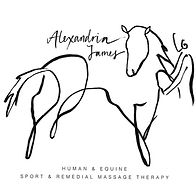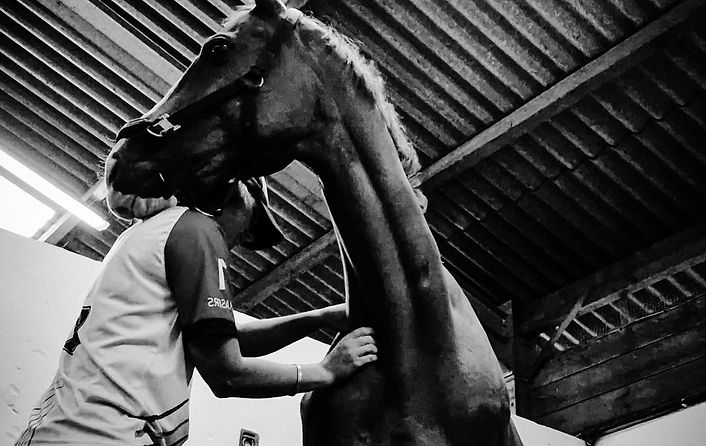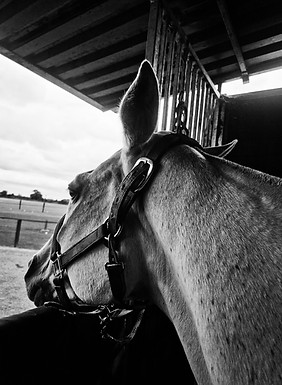

BENEFITS


The 5 Benefits of Equine Massage
1. Increased Flexibility
As horses age or experience physical problems or injuries, their flexibility may be compromised. Equine massage is positive as it can reduce muscle fatigue, inflammation, or tightness. Through stretching and massage techniques, equine massage ensures correct muscle alignment and improves the elasticity of the muscles. As a result, the flexibility of your horse is improved.
In a study performed by the Jack Meagher Institute, thanks to equine massage the stride length of a horse increased by 3.6% and at a walk and trot, 1.8% – a significant improvement after just a 20-minute massage!
2. Massage Helps Tackle Psychological Issues
If your horse is timid, fearful, or aggressive, massage can help relieve these problems. Many timid horses are fearful of touch or human interaction. Equine massage can help relieve these problems by slowly teaching a horse trust and gentle touch. Massage is a great way to bond with a difficult horse and will often be recommended by vets.
3. Aids Muscle Recovery
Equine massage is a fantastic way to aid muscle recovery. Massage will free the body from fatigue and cramp, as well as improving the access of oxygen to rich blood cells to help replenish the depleted stores and help repair any torn fibres.
Equine massage therapy is one of the most effective methods to use when encouraging muscle repair, swelling and fluid reduction, and healing after injury or illness. It is effective because massage warms up the muscles and helps improve blood flow through the body, helping to speed up recovery.
4. Massage Can Find the Problem
Equine massage is an effective way of finding the identifying the problem areas in a horse’s body. A professional equine massage therapist can be an extreme help to a vet, by finding the issue and then agreeing an effective treatment plan with your vet.
5. Equine Massage Provides Pain Relief
As we all know, massage encourages the release of endorphins and this rush of positive hormones can help relieve pain. However, this pain relief is only temporary, and a more long-term solution should be sought-after.
"@primestables"
Which horses need a treatment?
Competition horses
These horses will be putting a lot of strain on their body due to the high intensity work that they are doing. Especially if they are at a high level of competition. Just like a human athlete, regular physiotherapy should be carried out to ensure that they are in peak physical fitness; it can help improve performance, prevent injury, and enhance mobility and suppleness, being important not only during peak training, but also during rest and recovery periods.
Routine check-ups
It’s not only the elite athletes that need physiotherapy. Carrying out a routine assessment is sometimes recommended for all horses, helping to detect small problems early. Ensuring that your horse is pain free and has a good range of movement is important to allow them to live a happy and healthy life, enabling them to do the work that is required of them. In most cases a routine physiotherapy assessment is recommended every 6-12 months. However, if your horse has a history of musculoskeletal problems, they may require more frequent check-ups.
How do you know if your horse needs a physiotherapy assessment?
As well as getting a routine check-up by the physiotherapist, your horse may need to see them on other occasions. Any changes to the way your horse is performing may need assessment by a physiotherapist as these could indicate signs of musculoskeletal pain. Signs include tension through the neck and back when putting the saddle on, reluctance to jump or canter on one rein, stiffness on one side or bucking. The signs may even be more subtle, such as facial changes, uneven shoe wear or changes in ear position when riding. At first, it may seem like the horse is being naughty but it is important to have your horse checked over as all of these signs could be associated with neck, back or pelvic pain. Ensuring that you watch your horse closely is important in order to pick up any problems quickly.
"Sarah Hunter BVetMed MRCVS"